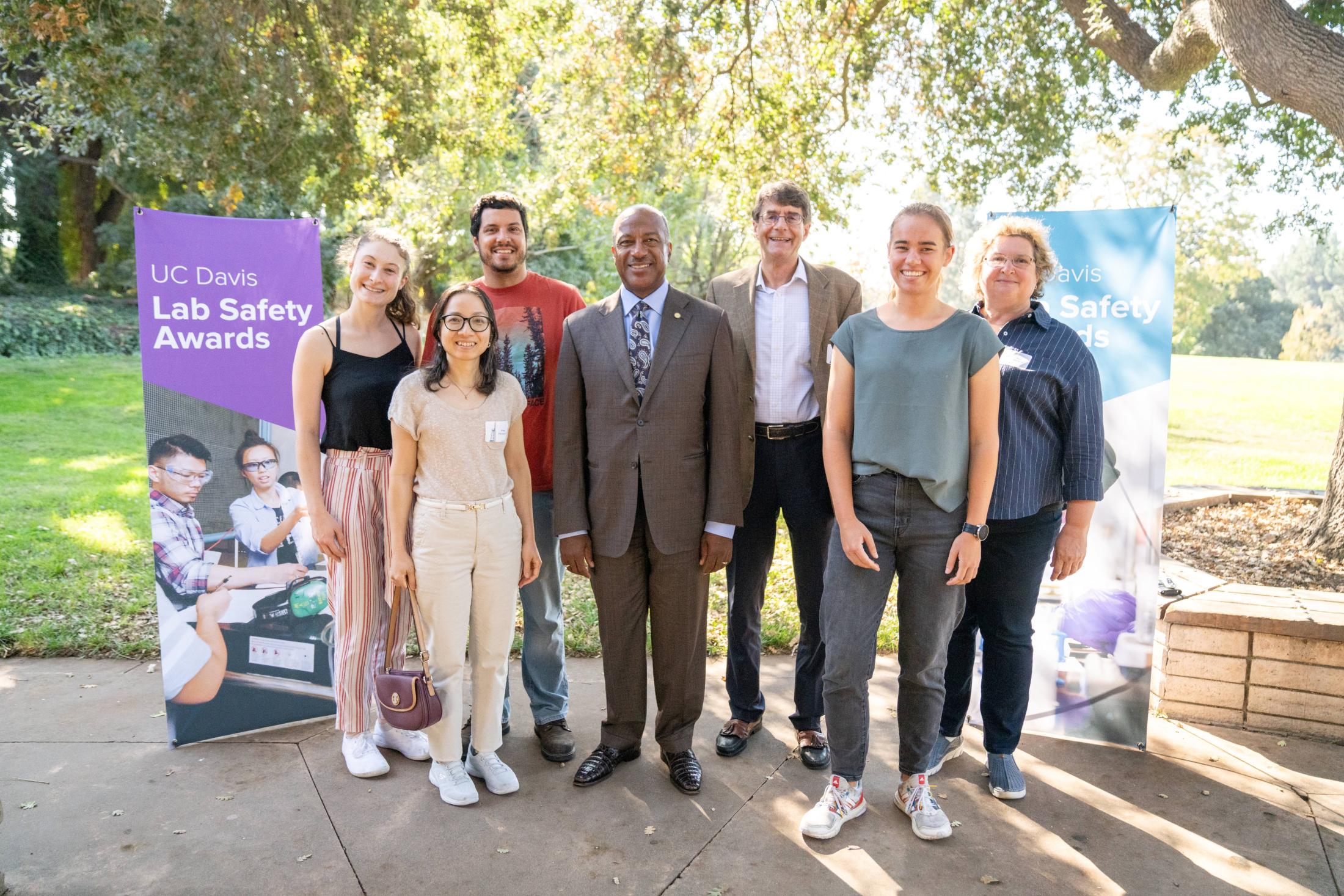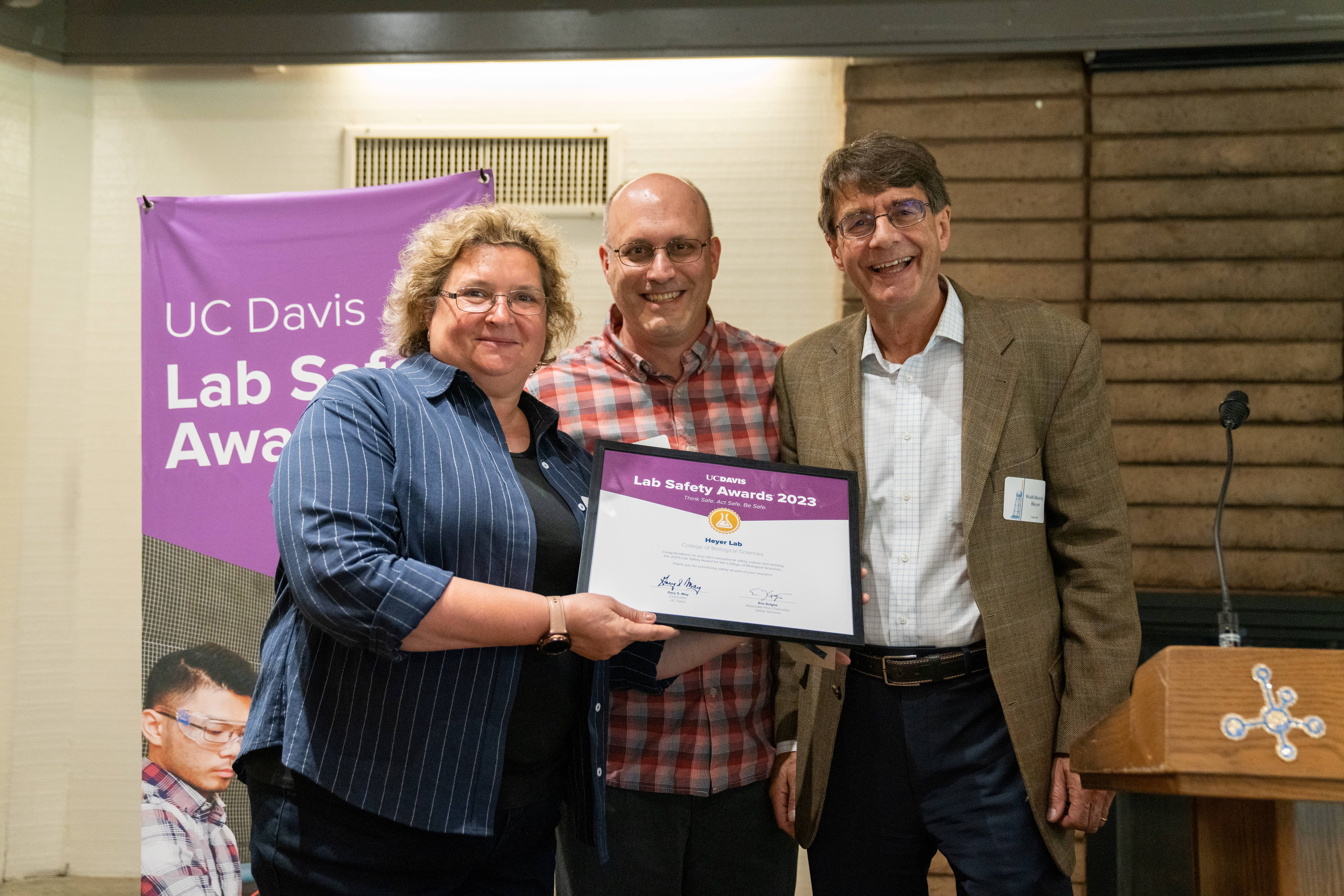The Heyer Lab is this year's winner in the College of Biological Sciences.
The laboratory of Dr. Wolf-Dietrich Heyer conducts fundamental research in basic cancer biology, aiming to establish new tools and paradigms to identify the mechanisms that maintain genomic stability.
Their work contributes to novel strategies to prevent, diagnose, and treat cancer, as well as other human diseases that are affected by genomic stability defects, such as neurodegeneration and neurodevelopment.
Safety procedures involve a consistent infrastructure to review, evaluate, and manage risks as well as to educate, sensitize, and enable lab personnel to maintain a safe laboratory environment. Lab manager Rita Alexeeva oversees a detailed onboarding process to make sure all new personnel have advanced safety training and awareness. The team regularly discusses and reviews safety procedures in their group meetings and also conducts a formal annual refresher safety session.

The Heyer Lab is particularly attentive in handling radioactive and carcinogenic materials, making sure that everybody appreciates and maintains safety, even those individuals who do not directly work with these materials. Lab members take this concern seriously, and visiting LSP Kristina Zumstein noted, “Both radiation and lab safety reviews had no findings” and that the lab was “wonderfully organized.”
Our laboratory culture emphasizes that everybody’s effort and engagement is required to maintain a safe environment,” said Dr. Heyer.
Every laboratory member is encouraged to voice concerns about laboratory safety to ensure that such concerns are addressed and resolved in a timely and open manner.

The Heyer Lab is currently focused on the structure-function relationship in the tumor suppressor protein BRCA2, the function of RAD51 and RAD54 and their paralogs in DNA repair, and what mechanisms assure quality control during DNA repair. With the constant personnel changes in an academic laboratory that hosts many undergraduate students, maintaining lab safety is a long-term project.
“It is critical to create an open environment that empowers everybody to speak up about safety,” said Dr. Heyer